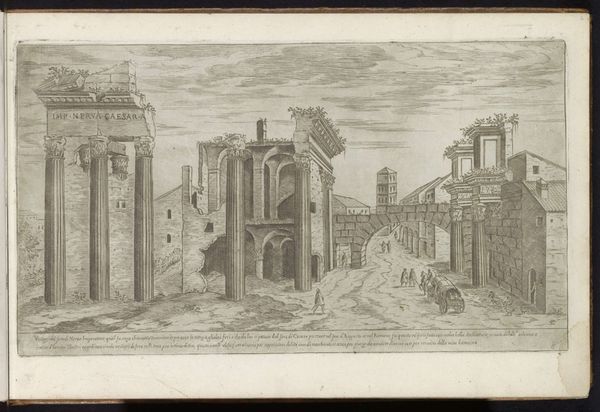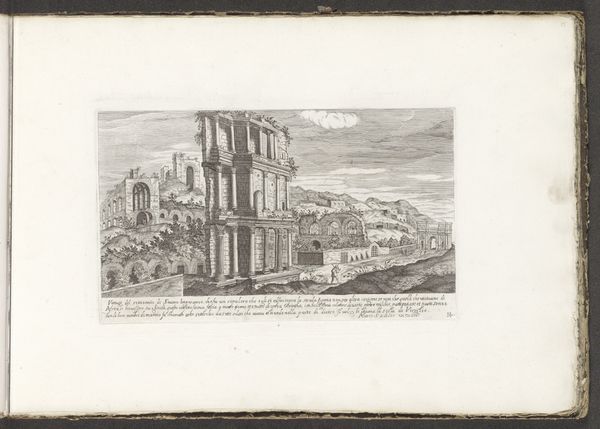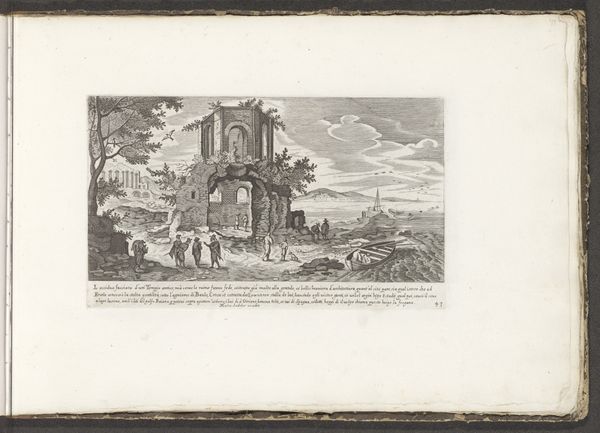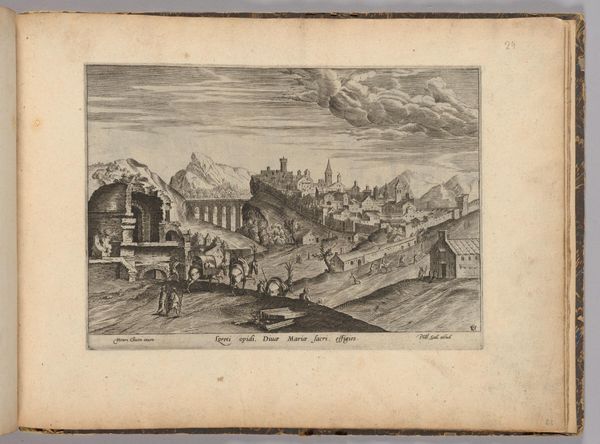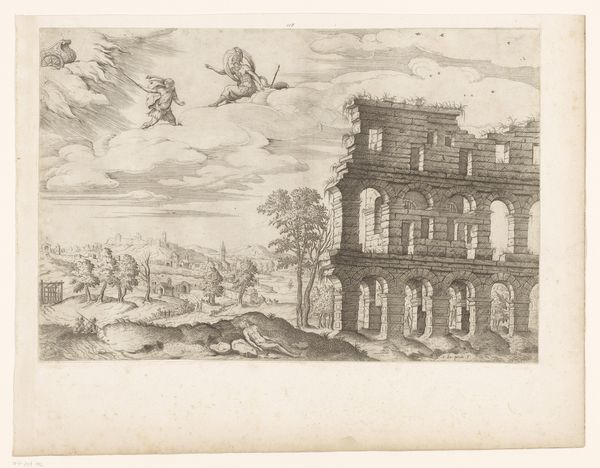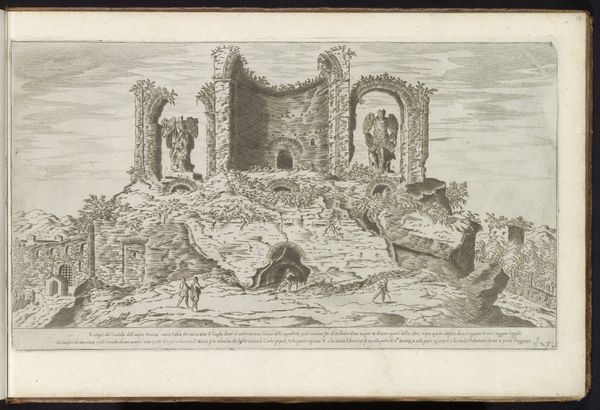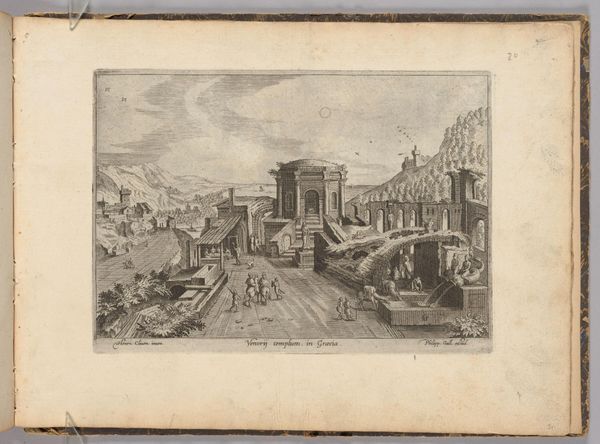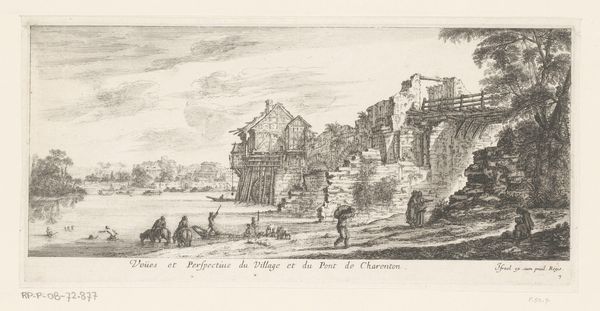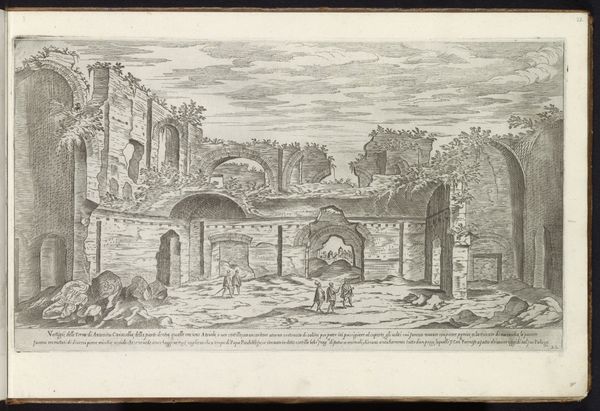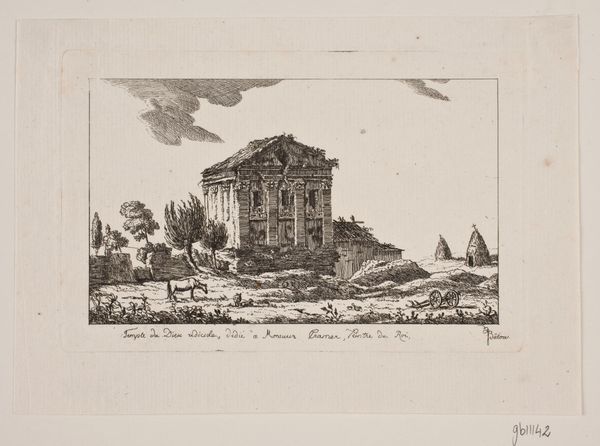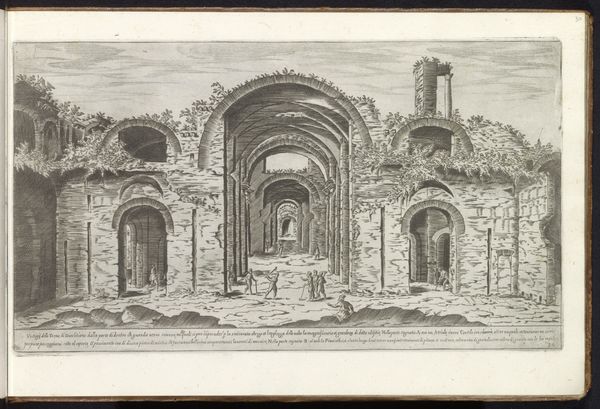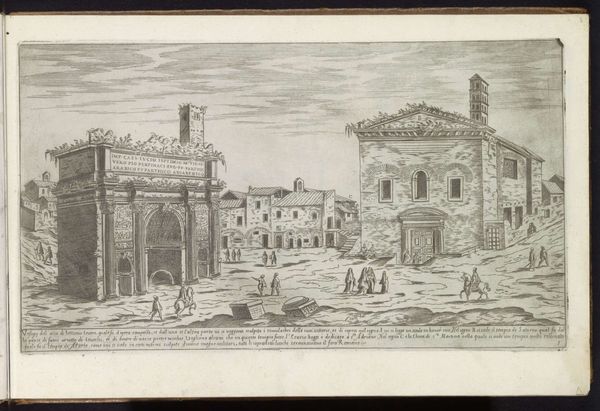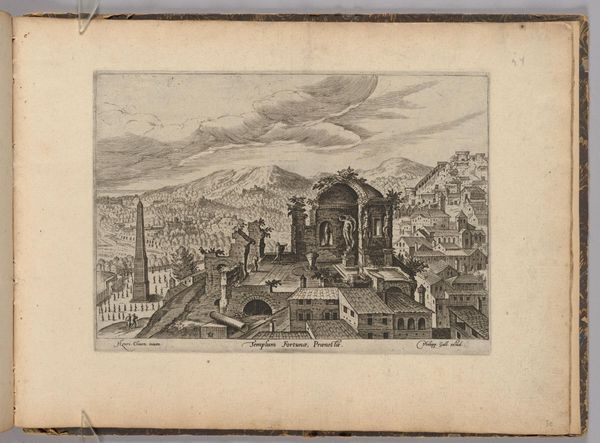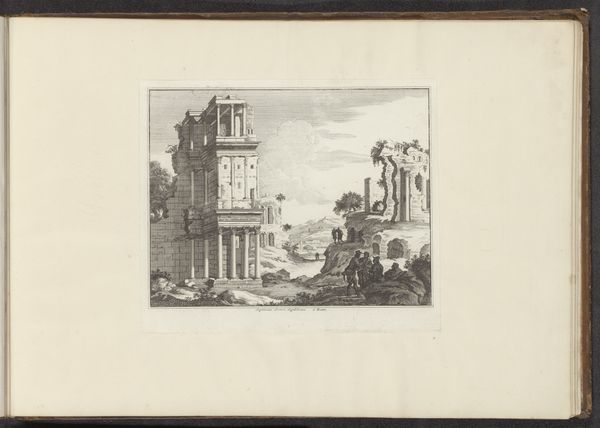
drawing, print, ink, engraving, architecture
#
pen and ink
#
drawing
#
ink drawing
#
pen drawing
#
mechanical pen drawing
# print
#
pen sketch
#
landscape
#
perspective
#
personal sketchbook
#
ink
#
ink drawing experimentation
#
ancient-mediterranean
#
pen-ink sketch
#
pen work
#
sketchbook drawing
#
cityscape
#
academic-art
#
engraving
#
architecture
Dimensions: height 214 mm, width 381 mm
Copyright: Rijks Museum: Open Domain
Étienne Dupérac made this print of the Septizonium in Rome sometime before 1601, using the intaglio process of etching. Here, a metal plate, likely copper, would have been coated with a waxy ground, into which the design was carefully inscribed with a sharp needle. The plate was then immersed in acid, which bit into the exposed lines, creating grooves. Ink was applied to the plate, filling these grooves, and then the surface was wiped clean. Finally, damp paper was pressed against the plate, transferring the ink and creating the image you see. Notice the fine, precise lines that define the architectural ruins and the landscape. The etching technique allows for a remarkable level of detail, capturing the texture of the stone, the play of light and shadow, and the overall atmosphere of the scene. The print not only documents the physical appearance of the Septizonium but also conveys a sense of its historical significance and the passage of time. This combination of technical skill and artistic vision challenges any easy separation between craft and fine art.
Comments
No comments
Be the first to comment and join the conversation on the ultimate creative platform.
